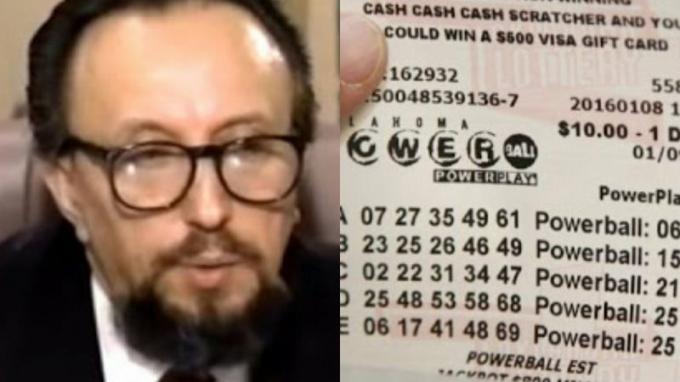In Brazil, the probability that a person who bet a single game of six tens to win is 1 in over 50 million. If the chances are already low to win once, imagine just to win 14 times. It seems impossible, but a mathematician from Romania managed to do it while living in ancient Soviet Union (USSR).
During the Cold War, life in the USSR was very difficult, as money was tight for most people. Thus, many families opted for illegal actions to support themselves, including fleeing the country. In this context, the Romanian accountant and mathematician, Stefan Mandel, arrived in a different way to earn money.
see more
‘Atlânticas’ program takes black, indigenous and quilombola women to…
Confirmed: Samsung really is producing foldable screens for…
For him, mathematics could make a fortune if applied correctly, and that's what Mandel did. His plan was bet all possible combinations in lotteries. The criterion for choosing which lotteries to play was the value of the prize, which should be at least three times greater than the amount spent.
To exemplify, in a bet of six numbers between 1 and 40, there are almost 4 million game possibilities. As the price of the game was 1 dollar, Mandel would only bet on games with prizes greater than 12 million.
The plan sounded great, but it required a logistical system to put in place. So Mandel chose a lottery where he could put the idea into practice and invited a group of friends and family to invest a few thousand dollars. With the money, he printed each of the possible games and went to a lottery to validate the games.
The first time he carried out the plan, in Romania, he won a prize of around 80,000 dollars. After paying off the investors and paying off his debts, the mathematician was left with nearly $20,000, enough to bribe Soviet government officials to flee the country.
After leaving Romania, he spent a few years in other countries perfecting the idea. The biggest difficulty was to fill in the combinations by hand, which facilitated the error. Another issue was that his winnings were not large compared to the prizes.
Four years after leaving Romania, Mandel settled in Australia, at the same time as the popularization of power plants. processing, better known as CPUs. Aware of this change, he created a program for the machines to fill the bets to eliminate the effort. human.

Meanwhile, the mathematician also gathered a solid group of investors to accompany him in all games and looked for the best lotteries in the UK system, of which Australia is a part. The group became known as Loto Syndicate and hit 12 jackpots, in addition to winning $400,000 in smaller stakes.
Because of this, the group began to draw attention in Australia, causing the organizations responsible for the development of the games to try to change the laws so that the group would stop profiting.
Then, in 1992, Mandel decided to expand his scheme and make a bet in the state of Virginia, in the United States. The lottery jackpot was $27 million, and he had an in-country contact, Anithalee Alex, who was in charge of processing 7 million games across the state.
Once again, the system worked and the mathematician won the top prize, second and third place, and several other smaller prizes, adding up to more than 30 million dollars. The victory caught the attention of US authorities, such as the FBI and CIA, who began to investigate Mandel.
However, the authorities came to the conclusion that the scheme did nothing illegal, as placing numerous bets was not a crime. Thus, Stefan Mandel was cleared and profited more than 15 million from this bet, after paying the amount of investors.
As the case became famous around the world, lotteries made changes to how the betting works to prevent other people from using Mandel's formula. In the United States, it was forbidden to print tickets at home, as well as buy countless different games.
Currently, Stefan Mandel is 86 years old and has retired from the gambling life. He lives on an island in Australia, just enjoying his fortune gained through "luck".
See more: Tactics and strategies that go against the rules Already used to win the lottery

